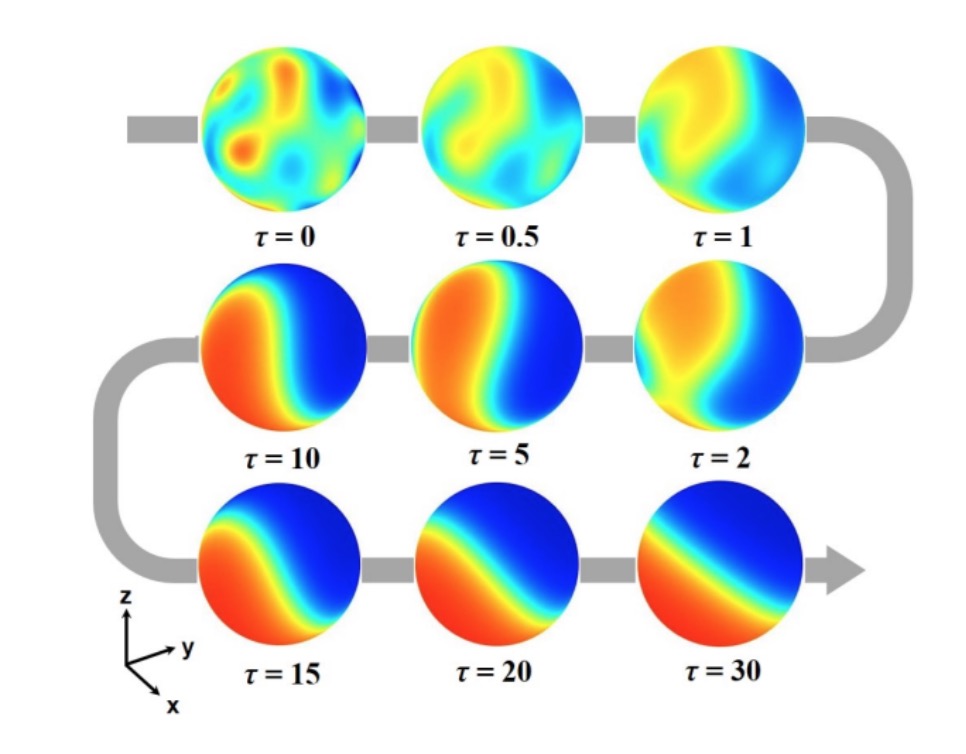February 27, 2018

I have just submitted a paper about the modeling of embryogenesis with the Shvartsman group at Princeton University. Let me review the main ideas of our work.
We proposed a new model for the formation of polarized patterns observed in early embryogenesis of C. elegans where mass conservation is the driving force. In our model, a species \(V\) moves freely in a cell \(\Omega\) and reversibly adheres to the cell membrane \(\partial\Omega\). The membrane-bound species \(U\) diffuses on the surface and recruits more of itself to the membrane. For a sphere of radius \(r\), \(U\) and \(V\) satisfy the following equations, $$ \left\{ \begin{array}{l} U_t = \frac{D_U}{r^2}\Delta U + k_b\big(U_0 + H(U - \Gamma)\big)V - k_d U \;\text{on $\partial\Omega$}, \\[1.5pt] V_t = D_V\Delta V\;\text{in $\Omega$}, \\[1.5pt] D_V\nabla V\cdot n = -k_b\big(U_0 + H(U - \Gamma)V\big) + k_d U, \end{array} \right. $$ for some constants \(D_U\), \(D_V\), \(k_b\), \(k_d\), \(\Gamma\) and \(U_0\). Upon nondimensionalization by \(u=k_dU/k_bV_0\), we obtain a single PDE $$ u_\tau = \delta^2\Delta u + \big(1 - \alpha\bar{u}\big)\big(\beta+H(u - \gamma)\big) - u. $$ Using the algorithms presented in a previous blog post, we showed that for arbitrary initial conditions, the only non-uniform long-term behavior was a single axisymmetric spherical cap:

We also showed that, starting from a constant initial condition, transient convection is enough to start the polarization process:

These findings reinforce the idea that symmetry breaking is crucial for the development of all living organisms.